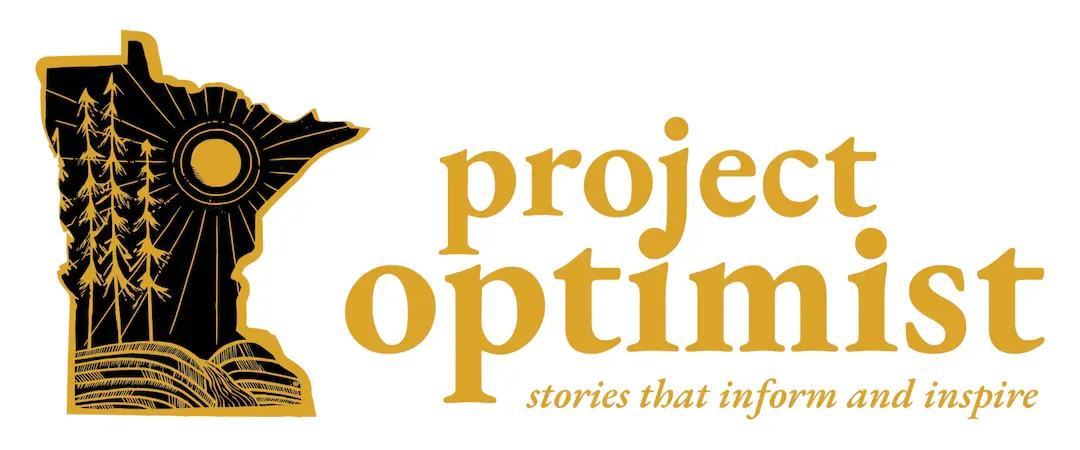Brainerd students, residents build belonging with stories
Project Optimist partners with The Sowing Room and Central Lakes College on a belonging dialogue.
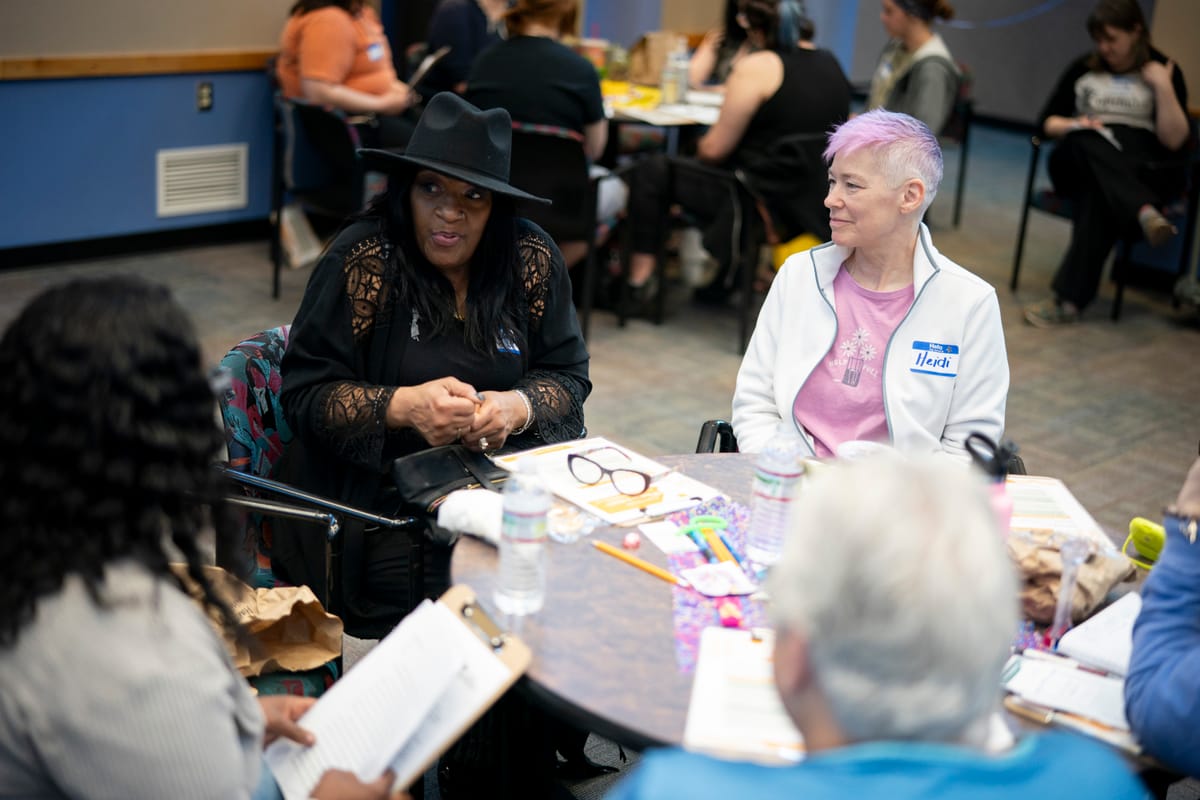
BRAINERD, Minn. – Belonging is as essential to life as breathing.
That’s one theme that emerged when about 32 people shared on Tuesday, April 29, at Central Lakes College in a moderated conversation on belonging.
The Sowing Room, a Brainerd-based nonprofit organization, hired Project Optimist to facilitate the event. Project Optimist Founder and Executive Director Nora Hertel trained 10 student moderators along with many community members. The students are studying Human Services at Central Lakes College.
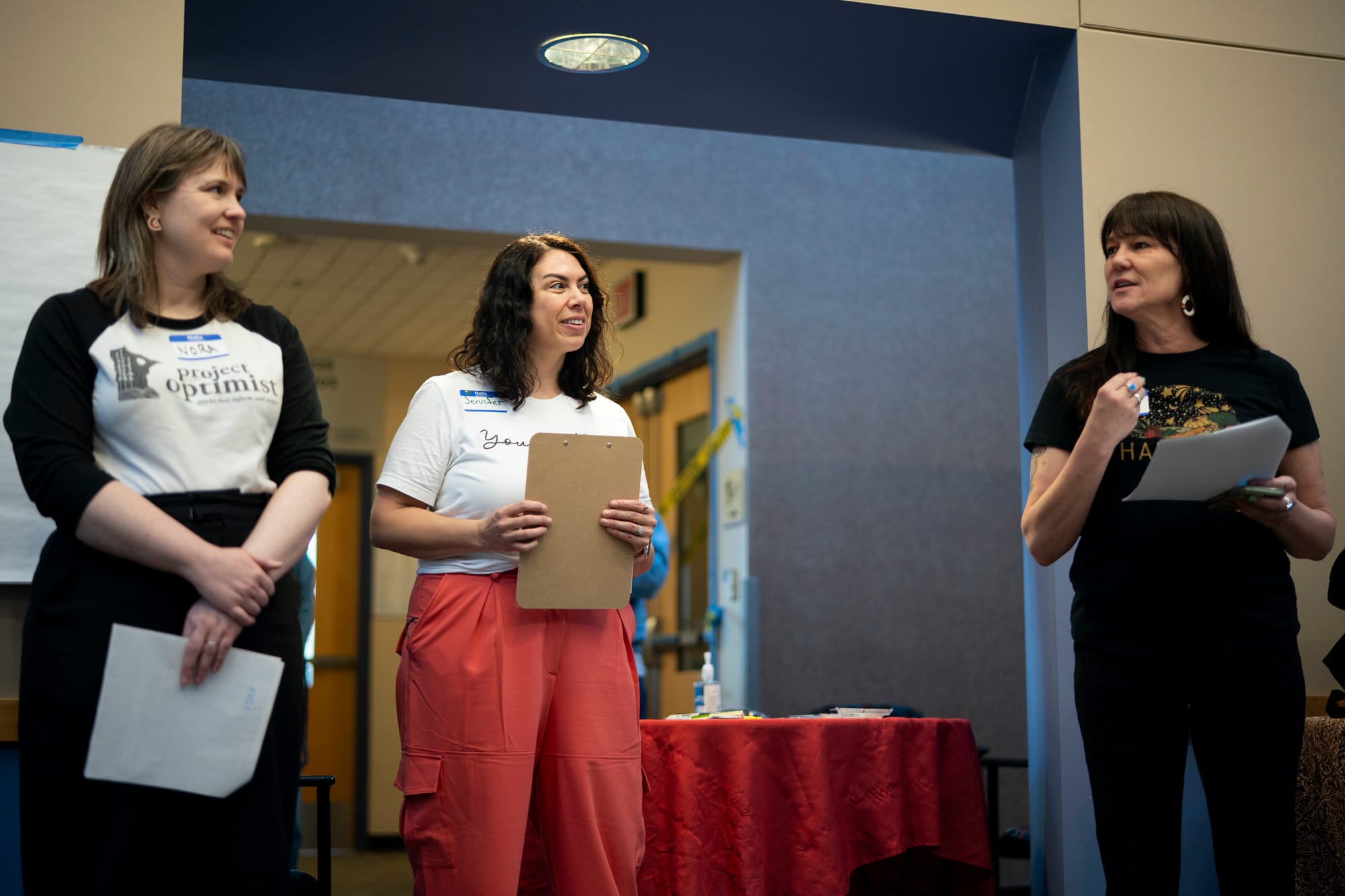
CLC students and community members joined the discussion to make connections and to share their own experiences.
Each group tackled two questions:
- Share your name and then share about a time when you realized the importance of belonging in your life or community. What took place and how did it make you feel?
- Can you share a time when the presence or absence of belonging has affected your well-being?
‘Belonging = breathing’
Participants compared belonging to breath in their stories. One shared that they couldn’t breathe when they lost their connections. Another said they could breathe for the first time after meeting someone who shared a unique and challenging life experience.
Here are other themes that emerged during the discussions:
- Belonging is a journey of self-discovery.
- Find your people.
- Build resilience, strength.
- Pay it forward when you find belonging.
- Find what lights you up: hobbies, passions, volunteer groups, new experiences.
- Belonging comes and goes: find supports and lean on them.
- Don’t judge others.
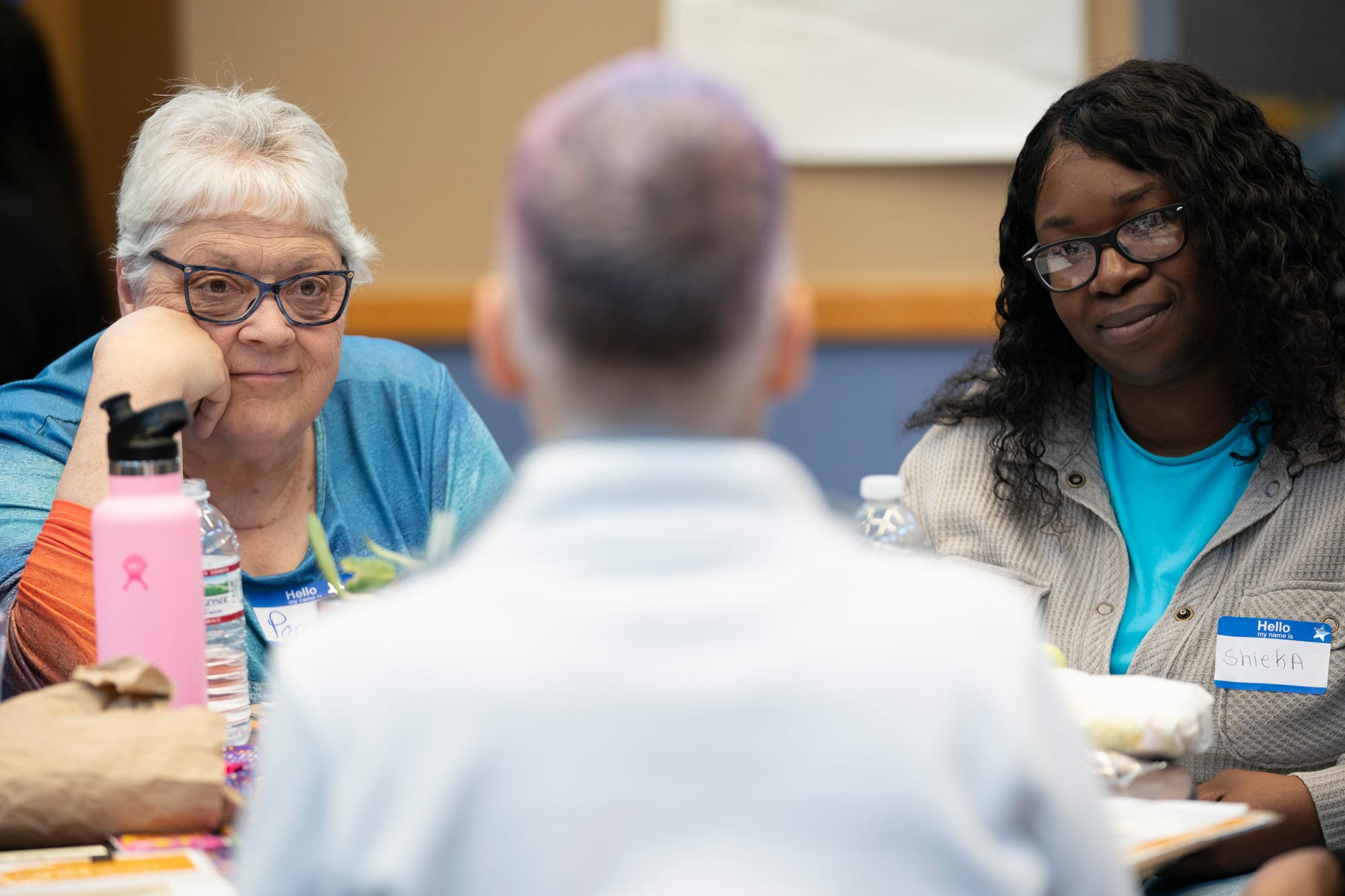
Potential solutions
Forgiveness.
Build up your sense of self.
Be curious.
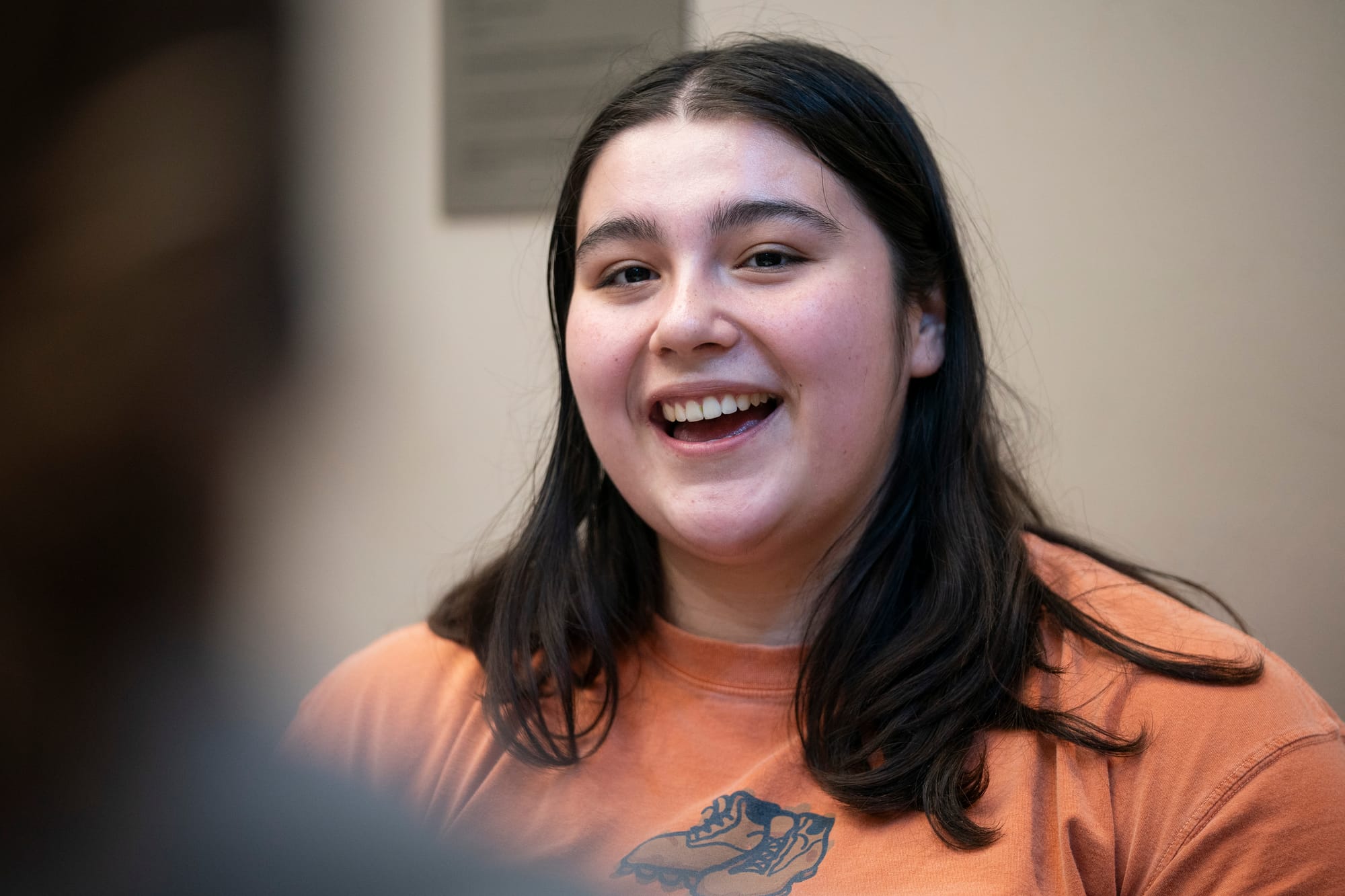
Take action
Attendees also brainstormed ways they find belonging or cultivate it in their community.
Here’s what they came up with:
- Reach out to other people.
- Get uncomfortable.
- Remember all people need belonging.
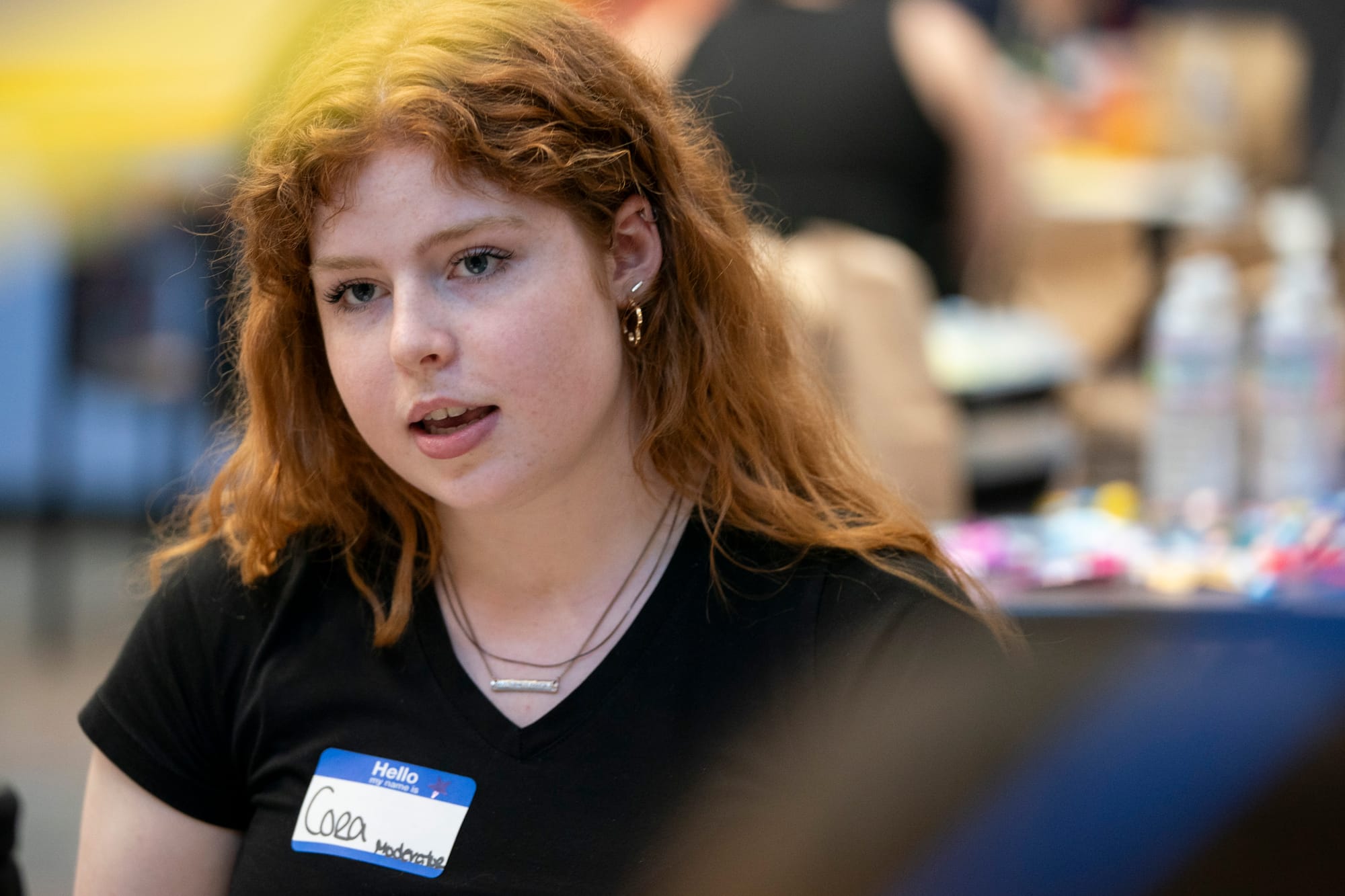
Meet some of the participants
Six people spoke with Project Optimist after the event. Some recounted the stories they shared during the discussion. Some spoke about how the event made them feel.
Here’s what a few had to say. Find more on our social media pages: Instagram, Facebook, and TikTok.
 Project OptimistJen Zettel-Vandenhouten
Project OptimistJen Zettel-Vandenhouten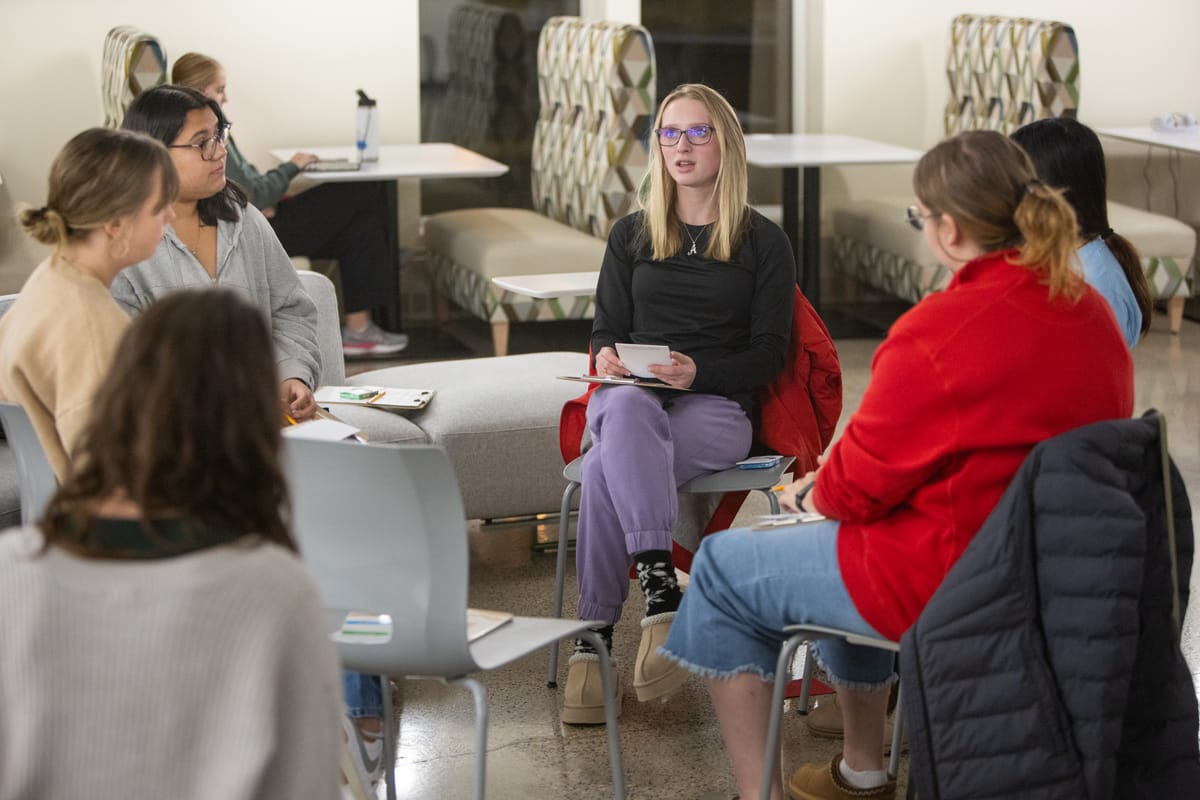
Cynthia Lee, a student at Central Lakes College who served as a group moderator, shared how she struggled with belonging after the death of her young son in 2022. She had strong friendships with a group of moms and their children. However, Lee wasn’t invited to outings after she lost her son, which made her feel isolated.
“I wasn't getting invited because I don't have any other children, and so that really took a toll on my mental health,” Lee said. “I started going down kind of a deep, dark path where I didn’t see the light at the end of the tunnel at all.”
A friend was concerned about Lee’s mental health and reached out to her. Lee found a support group for grieving parents after she decided to seek help.
When she reflected on her experience with belonging, Lee said people don’t have to have answers; they just need to care for their friends and hold space for them.
“Check on your friends. Check on your friends who have been through something. Let them be heard,” Lee said.
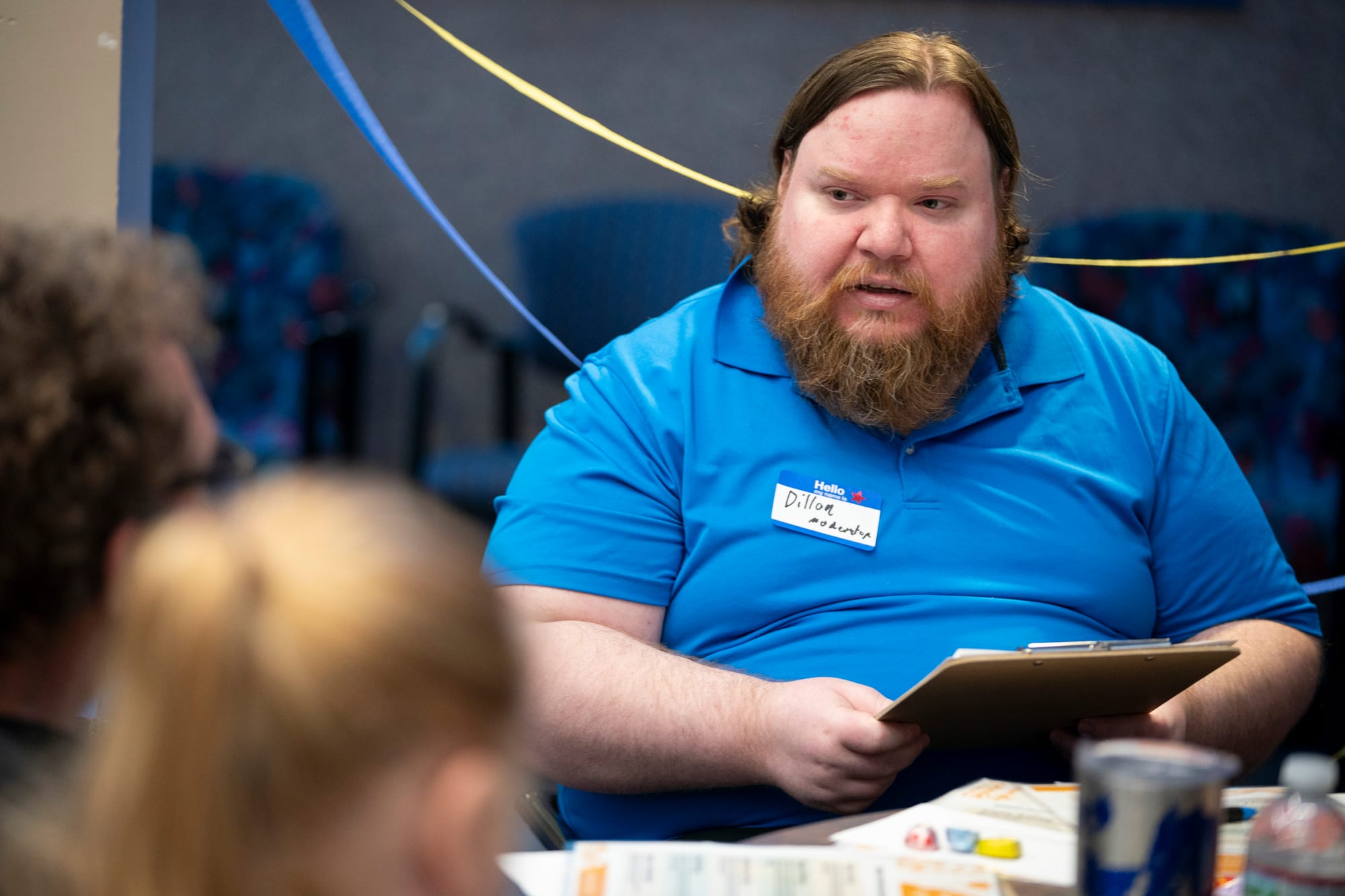
Dillon Kruse shared that they hadn’t experienced true belonging until they moved in with their grandparents before freshman year of high school. Up until that point, they were treated as “less than” by their family and not emotionally cared for. Kruse’s grandparents instituted a curfew, gave them a bedtime, set limits for computer and video game use, and required them to eat meals at specific times.
While they grumbled on the outside, Kruse said they actually loved the structure “because people cared.”
They started high school and excelled, forming relationships and earning good grades.
 Project OptimistJen Zettel-Vandenhouten
Project OptimistJen Zettel-Vandenhouten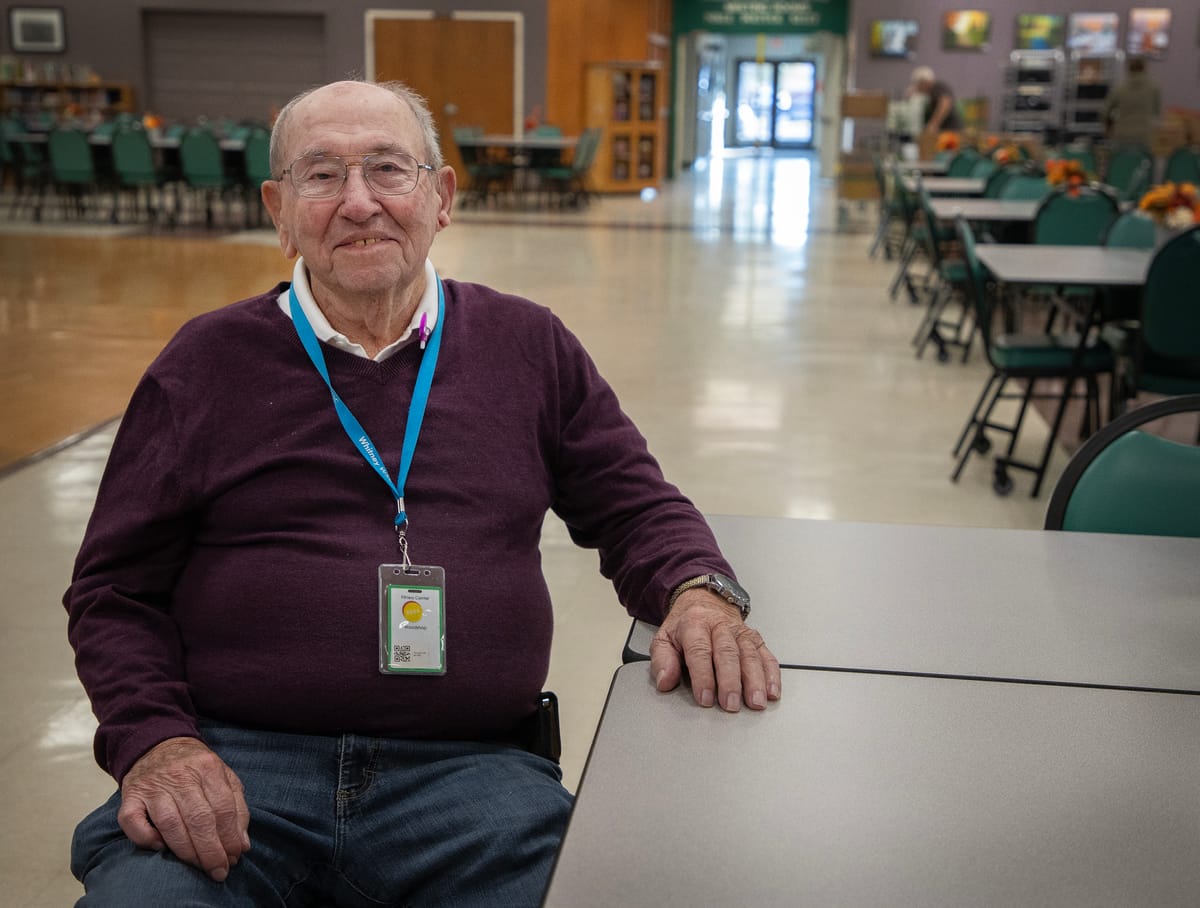
However, Kruse moved out of their grandparents’ house when the rest of the family moved to town. In the span of a few months, they dropped out of school.
“I was just brought right back down to that level and basically told and shown that I wasn't at the same value as a human being as my brothers were,” Kruse said. “And that kept me trapped for a long time.”
During the discussion, Kruse said members of their circle shared a range of experiences, and some felt their trauma wasn’t as significant as others.
Whether it’s bullying at school, racial discrimination, a relationship ending, or physical abuse, Kruse said it only matters how the experience impacted you.
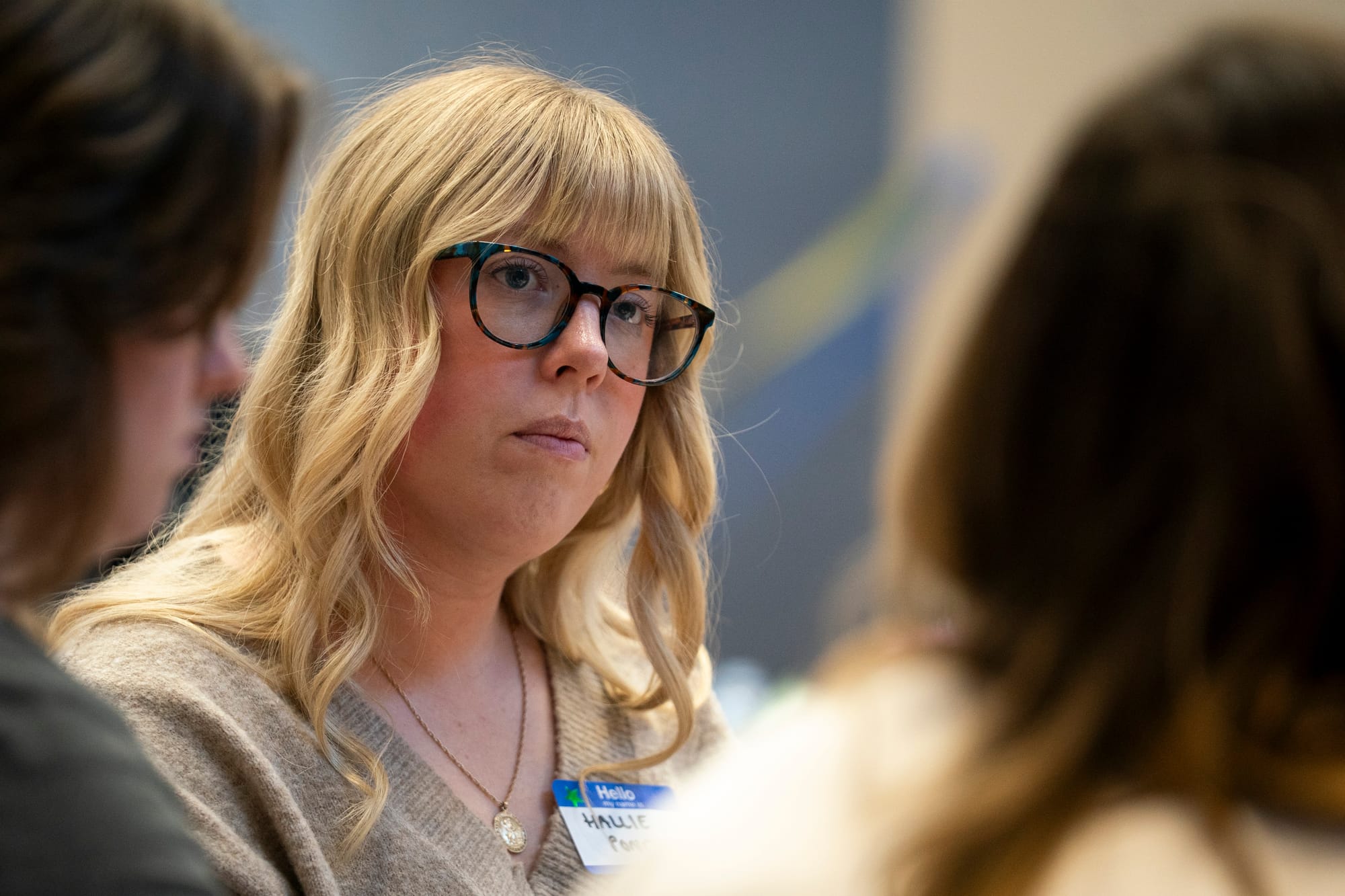
Hallie Pond described the event as “powerful.” It allowed her to listen deeply to other people’s stories and to share her own.
“I think both of those things create a true sense of belonging and community,” she said. “This was a very powerful experience in that way.”
Stay tuned
Project Optimist is planning story circles on housing and social isolation for the fall.
This story was edited by Nora Hertel.
